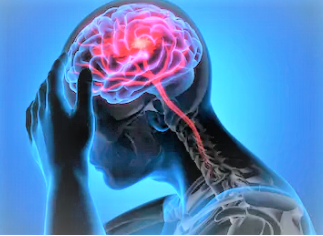
Today is October 29th. This day is observed as World Stroke Day to spread awareness about the serious nature and high rates of stroke, and the prevention and treatment of the condition, and ensure better care and support for stroke survivors. You need to know first who should focus on foods that help to prevent stroke. Stroke prevention is particularly important if you have any of the following:
- Hypertension
- Diabetes
- High Cholesterol
- Central Obesity
Working with your doctor or a Dietician can certainly improve your diet safely. In this article, Nutritionist and Dietician Avni Kaul talks about foods that prevent stroke.
Yogurt (Probiotic Foods) – Probiotics improve your gut-brain axis, the pathway where your gut interacts with your brain. It means that improving gut health has a good, cascading effect on brain health which is the essence of stroke prevention. So, fill up on these naturally probiotic foods such as yogurt, cottage cheese, idli, and paneer. If one is diabetic, it’s essential to avoid sweetened yoghurt. Instead, enjoy unsweetened yogurt having low-sugar fruits like strawberries and oranges.
Prebiotic Foods – In order to get complete benefits from probiotics in your diet, one also, needs prebiotics. Prebiotics are indigestible fibre which promotes the growth of good bacteria in your gut. Thus, try to include some of these prebiotic foods as part of your diet. Bananas, onion, beans, and garlic are good sources. It means when probiotic and prebiotic foods are combined, they form a potent team to counter stroke.
Fibrous Foods – Reducing or maintaining your cholesterol is vital for stroke prevention since high cholesterol and stroke are associated. The idea is to improve the good type of cholesterol (HDL) and reduce the bad type of cholesterol (LDL). To avail this stroke-preventing effect, load up on these fibrous foods like beans, vegetables, fruits, and oats.
Vitamin D – Vitamin D gives neuroprotective, neuromuscular, and osteoprotective benefits. Which means it is good for your brain, muscles, and bones. And anything that safeguards your brain also helps prevent stroke. You can get vitamin D straight from sun exposure or the dietary sources in the form of egg yolks, orange juice, soya milk, and cereals.
Fatty Acids – Your brain is nearly made up of 60% fat. Thus, it is no surprise that your brain requires essential fatty acids to work efficiently. One such way to get fatty acids is from omega-3s. Some of the best forms of omega-3s are walnuts, flaxseeds, chia seeds, and soyabeans (roasted).

